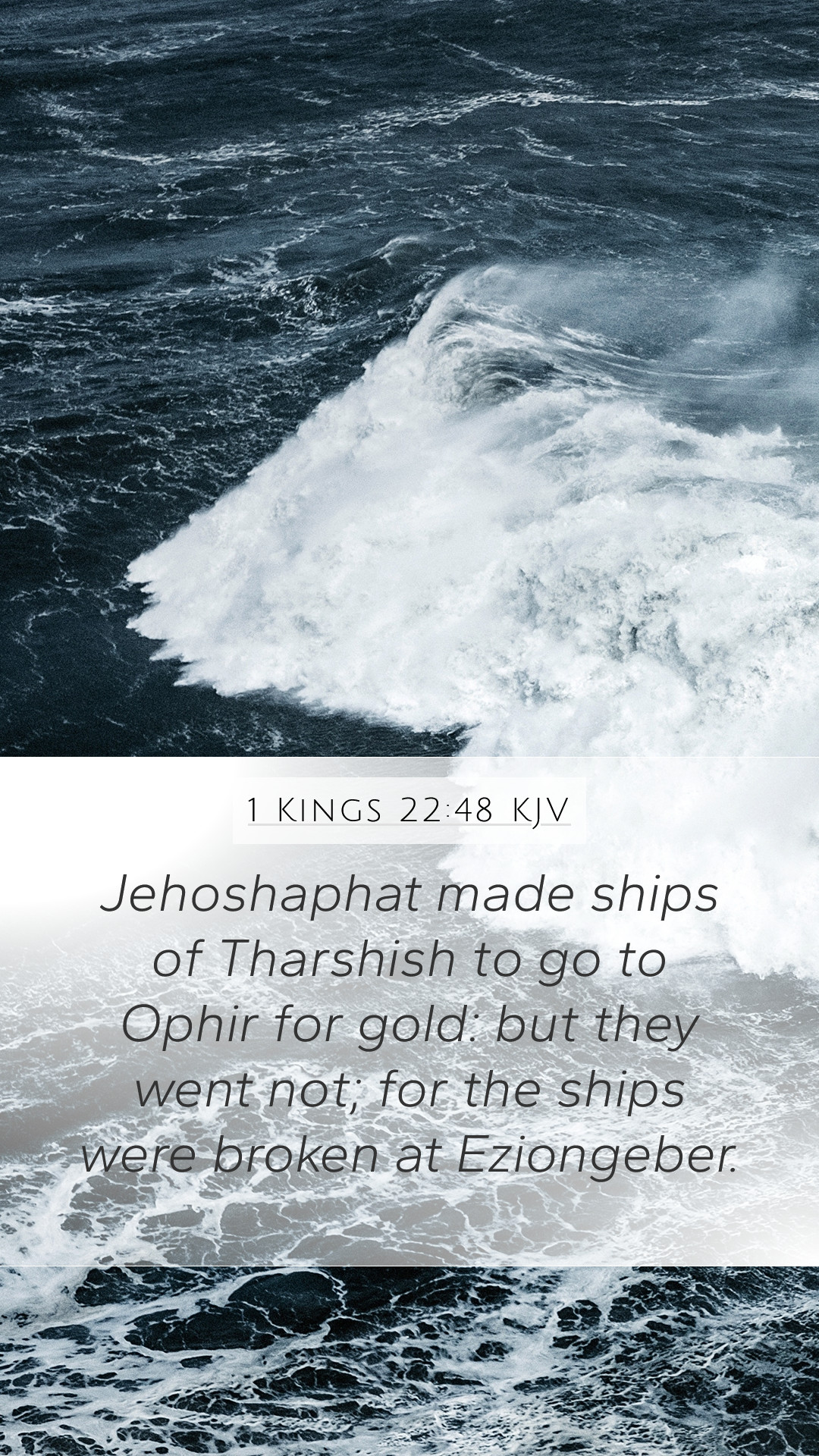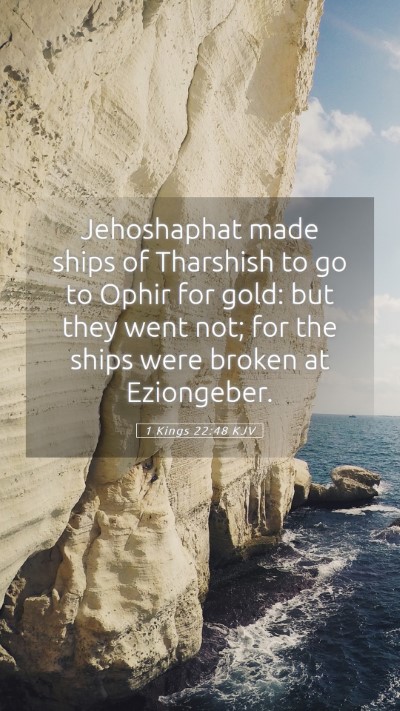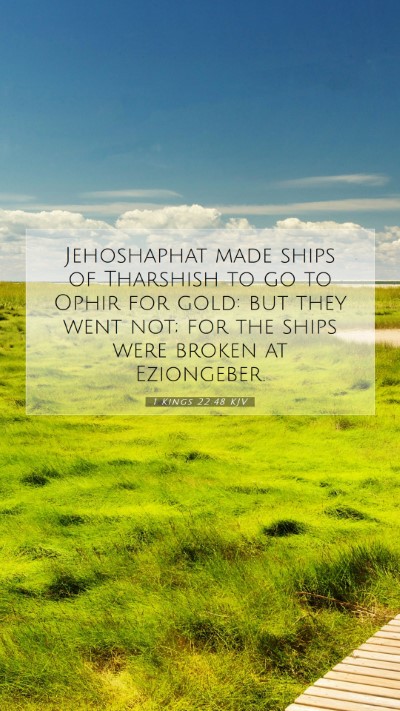Bible Verse Explanation: 1 Kings 22:48
Verse Reference: 1 Kings 22:48 - “Jehoshaphat made ships of Tarshish to go to Ophir for gold: but they went not; for the ships were broken at Eziongeber.”
Summary of Meaning
This verse highlights the failure of King Jehoshaphat's naval venture, reflecting not only a physical setback but also a spiritual lesson about reliance on God. Public domain commentaries from notable scholars such as Matthew Henry, Albert Barnes, and Adam Clarke offer insights into the implications of this passage, providing readers with a deeper understanding of its significance.
Interpretations from Commentaries
-
Matthew Henry's Commentary
Matthew Henry emphasizes the futility of the ships' construction, representing the broader theme of human endeavor without divine blessing. He notes that despite Jehoshaphat's intentions to trade and acquire wealth through the sea, God intervened, preventing the completion of this venture. This serves as a reminder that earthly ambitions are sometimes thwarted by God's providential hand.
-
Albert Barnes' Notes
Albert Barnes highlights the verse's context, detailing how this incident follows Jehoshaphat's alliance with Ahab and suggests that such alliances can lead to undesirable consequences. Barnes notes that this failure was not merely about the lost ships but a larger illustration of the dangers of straying from God's guidance. His commentary stresses the importance of aligning one’s plans with divine will.
-
Adam Clarke's Commentary
Adam Clarke points out the significance of Ezion-geber as a location. He describes it as a crucial port in Israel and reflects on the symbolism of ships being broken at the site where efforts were painstakingly made. Clarke suggests a spiritual parallel, indicating that reliance on human strength can lead to disappointment and ruin, thereby reinforcing the message of spiritual dependence on God.
Understanding and Application
This verse invites readers to consider how they structure their efforts and ambitions. It poses critical questions about their reliance on human schemes versus divine direction.
- Dependence on God: Reflect on how your plans align with God’s purpose. Consider prayer and reflection when making life decisions.
- Historical Context: Understanding the relationship between Jehoshaphat and Ahab can provide context for the events occurring in Israel at this time.
- Learning from Failures: Assess personal ventures that have failed despite good intentions, and seek wisdom in how to align future actions more closely with Scriptural guidance.
Bible Study Insights
This passage encourages group discussions in bible study groups or online bible study platforms. It is pertinent for studying how biblical kings operated and the implications of their relationships and decisions on their reigns and nation.
Related Bible Cross References
- 2 Chronicles 20:37 - Reflecting on Jehoshaphat's alliances and their consequences.
- 1 Kings 22:1-4 - Context for Jehoshaphat’s decisions and their dire outcomes.
- Proverbs 16:9 - Offering insight into the balance between human planning and divine ordering.
Conclusion
1 Kings 22:48 provides profound lessons regarding human endeavors and God's sovereign control over outcomes. The implications of this verse in terms of personal ambition, spiritual dependence, and biblical history are valuable for study. Engaging with scripture analysis and biblical exegesis in this context enriches our understanding of godly wisdom and the right approach to planning and execution in our lives.


